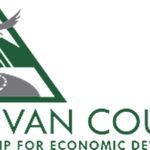The Committee of Sponsoring Organizations of the Treadway Commission (COSO) framework is a globally recognized standard for designing, implementing, and evaluating internal controls. Despite its widespread adoption, the integration of its elements into organizational processes can be complex and challenging.
Compliance experts play a crucial role in simplifying this integration, ensuring that businesses not only adhere to regulatory requirements but also achieve operational excellence. This article looks at the various strategies employed by compliance experts to streamline the integration of coso elements.
Identifying Key Elements for Business Alignment
One of the first steps compliance experts take is to identify the key elements that align with the organization’s strategic objectives. The five components—Control Environment, Risk Assessment, Control Activities, Information and Communication, and Monitoring Activities—must be tailored to fit the unique operational context of the business.
Compliance professionals conduct thorough assessments to understand the business model, industry-specific risks, and existing control mechanisms. This targeted approach ensures that the integration process is relevant and efficient, focusing on areas that will provide the most significant impact.
Conducting Comprehensive Risk Assessments
Risk assessment is a foundational element of the COSO framework, and compliance experts excel in conducting comprehensive risk evaluations. They identify and analyze risks that could impede the achievement of organizational objectives.
By employing advanced risk assessment tools and methodologies, professionals can prioritize risks based on their potential impact and likelihood. This prioritization enables organizations to allocate resources effectively, addressing the most critical risks first and ensuring that risk management efforts are proportionate to the potential threats.
Streamlining Internal Control Processes
Compliance experts simplify their integration by streamlining internal control processes. They assess the current control environment and identify redundancies, inefficiencies, and gaps. By redesigning control processes to be more streamlined and effective, experts help organizations reduce complexity and improve operational efficiency. This often involves the implementation of standardized procedures, automated controls, and clear documentation practices, which together enhance the overall control environment.
Enhancing Information and Communication Channels
Effective information and communication are vital for the successful integration of these elements. Compliance experts focus on enhancing these channels to ensure that relevant information flows seamlessly across the organization. They establish robust reporting systems, implement secure data management practices, and facilitate transparent communication between different departments. This ensures that all stakeholders have access to the information they need to perform their roles effectively and that any issues or concerns are promptly addressed.
Establishing Effective Monitoring Activities
Monitoring activities are essential for ensuring that the components remain effective over time. Specialists design and implement monitoring mechanisms that provide continuous oversight of internal controls. This includes regular audits, real-time monitoring systems, and periodic reviews of control activities. By establishing a culture of continuous improvement, compliance professionals help organizations promptly identify and rectify control deficiencies, thereby maintaining a strong and resilient internal control environment.
Designing Robust Control Environments
The control environment sets the tone for the entire organization, influencing the control consciousness of its people. Professionals play a crucial role in designing robust control environments that promote ethical behavior, accountability, and compliance with policies and regulations.
They work closely with senior management to establish a strong organizational culture, develop clear policies and procedures, and implement comprehensive training programs. A well-designed control environment fosters a culture of integrity and compliance, which is essential for effective integration.
Integrating Control Activities with Business Operations
Control activities are the actions taken to mitigate risks and ensure that management directives are carried out. Compliance experts simplify the integration of these activities by embedding them into the organization’s day-to-day operations. They develop control activities that are not only effective but also practical and sustainable within the business context. This involves collaborating with various departments to design controls that align with operational workflows, ensuring that control measures are seamlessly integrated into routine business processes.
Utilizing Technology to Automate Compliance Tasks
Technology plays a pivotal role in simplifying the integration. Experts leverage advanced technological solutions to automate compliance tasks, reducing the burden on human resources and minimizing the risk of errors. They implement compliance management software, automated reporting tools, and real-time monitoring systems to enhance the efficiency and effectiveness of internal controls. By embracing technology, they enable organizations to maintain high standards of compliance while optimizing operational efficiency.
Providing Continuous Training and Education
Ongoing training and education are critical for ensuring that employees understand and adhere to the elements. Specialists design and deliver continuous training programs that keep employees informed about the latest regulatory requirements, internal policies, and best practices in risk management and control. These programs are tailored to different levels of the organization, ensuring that everyone, from senior executives to front-line staff, has the knowledge and skills needed to uphold the organization’s control environment.
Facilitating Regular Review and Improvement of Controls
The dynamic nature of business and regulatory environments necessitates regular review and improvement of internal controls. Specialists in compliance facilitate this process by conducting periodic evaluations of the effectiveness of control activities and the overall control environment.
They gather feedback from stakeholders, analyze control performance data, and stay abreast of emerging risks and regulatory changes. This proactive approach ensures that internal controls remain relevant and effective, enabling organizations to adapt to new challenges and maintain compliance.
Implementing Robust Fraud Prevention Measures
Fraud prevention is a critical aspect of the framework, and experts play a pivotal role in implementing robust measures to safeguard against fraudulent activities. They develop and enforce anti-fraud policies, conduct regular fraud risk assessments, and establish whistleblower programs to encourage reporting of suspicious activities.
By fostering a culture of vigilance and integrity, professionals ensure that all employees are aware of the signs of fraud and understand the importance of ethical behavior. They implement advanced data analytics and continuous monitoring tools to detect and prevent fraudulent activities, thereby enhancing the organization’s ability to respond swiftly to potential threats.
Ensuring Compliance with Regulatory Changes
Regulatory environments are constantly evolving, and experts are essential in ensuring that organizations stay ahead of these changes. They monitor legislative and regulatory developments, interpret their implications for the organization, and update internal policies and procedures accordingly.
They also engage with regulatory bodies and industry groups to gain insights into emerging trends and best practices. By maintaining an agile and proactive approach, they help organizations adapt to new regulatory requirements seamlessly, minimizing the risk of non-compliance and associated penalties. This continuous vigilance ensures that their integration remains effective and up-to-date with the latest regulatory standards.
The integration of coso elements into an organization’s processes is a complex task that requires specialized knowledge and expertise. Experts play a vital role in simplifying this integration by identifying key elements, conducting comprehensive risk assessments, along with the other necessary factors.








